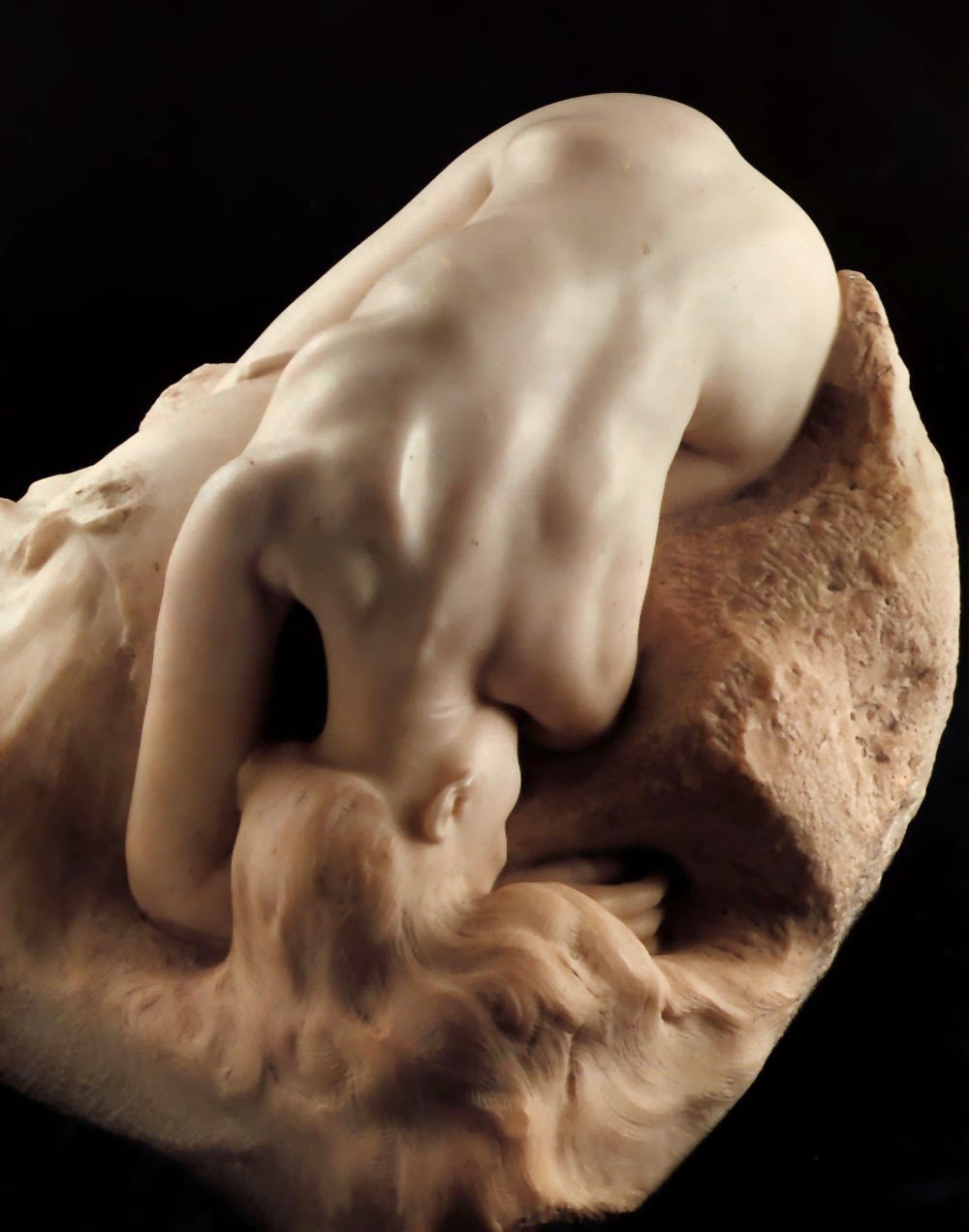To celebrate its tenth anniversary, Compton Verney Gallery, which
is set in a former privately-owned stately home and parklands in Warwickshire,
is host to a major exhibition comparing the work of two giants of sculpture –
Auguste Rodin and Henry Moore.
Collaborating with The Henry Moore Foundation and Musée Rodin, the exhibition
features five Moore and six Rodin sculptures in its grounds, with a larger
selection of smaller pieces and drawings displayed throughout the gallery’s
rooms.
In a similar vein to the Ashmolean’s Bacon/Moore exhibition
which closed in January, this collection also draws parallels in the use of the
human figure in each artist’s work.
However, while Bacon/Moore timelines and experiences of the Second World
War overlapped, Moore/Rodin were separated by an age gap of fifty-eight years
(Moore was nineteen when Rodin died in 1917).
Danaid, Rodin (1885)
Working Model for Mother and Child, Upright, Moore (1978)
The juxtaposition of large pieces of sculpture (particularly
Moore’s modernist pieces) against architecture and gardens such as at Compton
Verney are always a delight for the eyes.
Here though, the gardens overwhelm the pieces on display and could have
benefitted from a greater number within the grounds – the delight in
discovering the pieces was over immediately as all the others were always
within eyesight. Inside the gallery the
selection of sculptures worked much more successfully. Alongside both sculptors finished pieces and
maquettes an additional display case demonstrated how Moore and Rodin were collectors of antiquities and found
objects which reflected their contrasting working methods - Moore was drawn to
African, Oceanic, pre-Columbian and Cycladic sculpture, while Rodin
concentrated on collecting classical antiquities.
Rodin’s
intense scrutiny of the form (invariably female) bear rich fruit in his torso
studies which show every taunt muscle and clearly reflect his interest in
classical sculpture, while Moore’s abstracted heads can also be traced back to
his interest in Oceania.
Bizarrely
when visiting sculpture exhibitions, I am always equally as fascinated by any
associated drawings as the sculptures themselves. I find the link between a sketched idea and
the finished creation, or in fact any drawing by an artist who predominately
works in 3D, strangely compelling.
The Artist's Hands, Moore (1974) The Cathedral, Rodin (1908
Walking
around this exhibition, it quickly became apparently how familiar most of the
work on display was, which made me realise how fortunate I have been in my
access to such wonderful artworks. I
have been lucky enough to visit Musée Rodin and The Henry Moore Foundation Hertfordshire
where the artists lived and worked and are home to the majority of the work
here. If this exhibition ignites (or
rekindles) an interest or love in Moore and Rodin, then a visit to Perry Green
and Paris should definitely be next.








No comments:
Post a Comment